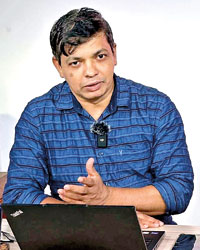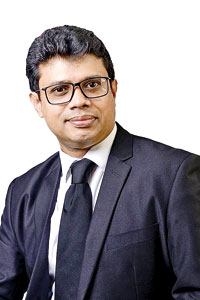News
Parliamentary poll expenditure reports to be publicised
View(s):By Ishu Bandara
The election campaign income and expenditure reports submitted by candidates and political parties who participated in the November 14, parliamentary election will be accessible to the public starting December 17.
Citizens will also have 30 days from that date to file complaints regarding these reports.

D. M. Dissanayake
These reports are going to be published amidst ongoing discussions on several proposed amendments and suggestions by the officials to the Election Expenditure Act No 03 of 2023.
Commissioner General of Elections, Saman Sri Rathnayake, told the Sunday Times that they had identified significant loopholes in the current Election Expenditure Act during its practical implementation.
He emphasised that these issues could have been mitigated if the government had adopted the Election Commission’s proposed draft from the outset.
“We have been proposing measures to make this act effective since 2014. Eventually, we submitted a draft incorporating all the key points to the then-government. However, they adopted it after removing some of the clauses we had highlighted,” stated Mr Rathnayake. “This act was not intended to be implemented in haste; it requires further revisions to ensure its proper formulation.”
“What we proposed was that every candidate should open a separate account exclusively for their transactions during the election period. This would make it easier for anyone to trace the sources of their funding and how the money is spent, all in one place,” Mr Rathnayake explained. “Now, it has become complicated to track these details, and it may end up being referred to the Bribery Commission for inspection.”
“Another clause that needs to be added to the act is to impose a limit on the amount companies can contribute to the entire election, as well as to individual candidates or political parties,” Mr Rathnayake suggested. “Without such a restriction, companies could provide substantial sums to a single party or candidate, paving the way for unwanted advantages. Furthermore, this could result in companies effectively buying influence over the party or the candidate.”

Dr Sandun Yapa Karunarathna
Proposals to enhance the Act, such as mandating separate bank accounts for campaign transactions or limiting corporate donations to candidates and parties, have yet to be fully implemented. The absence of these measures can lead to bribery or undue influence by wealthy donors.
Attorney-at-Law, Election Analyst, and Governance Trainer D M Dissanayake told the Sunday Times that under the Election Campaign Finance Act, submitting false data, exceeding expense limits, or failing to submit reports within 21 days after the election are prosecutable offences. But ECSL does not have the mechanism to find out how accurate these reports are.
Mr Dissanayake added, “The ECSL currently lacks a mechanism to verify the accuracy of these reports. If no one raises objections or files complaints, even incorrect reports could be accepted as accurate. It is crucial to empower the ECSL or the Bribery Commission to check these reports, and such amendments need to be incorporated into the act.”
Dr Sandun Yapa Karunarathna, a candidate in the recently concluded parliamentary election, told the Sunday Times: “Within the National People’s Power (NPP), we already have an Election campaign expenditure tracking system. All expenses and funds of our candidates are managed through a unified system across all districts, with everything documented using standardised forms provided by the party. This ensures transparency in managing election funds and expenses within the party. Implementing an act to trace election campaign income and expenses is crucial, as it would require everyone to adhere to a system of accountability and transparency.”
Dr Karunarathna also pointed out a concern regarding the requirement in the act for small donors to indicate their identity card numbers on the specified format. “This may create apathy and even panic among small-scale donors,” he explained. Additionally, the act should establish a minimum limit for contributions that need to be declared by both companies and individuals, ensuring transparency without discouraging small-scale support.”
The process of collecting election campaign income and expenditure reports is currently being handled by District Secretariat offices across the country. According to one official, nearly 50 percent of their staff had to be allocated exclusively to this task, significantly disrupting their regular duties. The official suggested that if the Election Commission or the Bribery Commission could take over this responsibility, it would provide much-needed relief to the District Secretariat offices.
Addressing these issues requires stronger amendments, increased accountability, and strong implementation to ensure the Act achieves its intended purpose.
The best way to say that you found the home of your dreams is by finding it on Hitad.lk. We have listings for apartments for sale or rent in Sri Lanka, no matter what locale you're looking for! Whether you live in Colombo, Galle, Kandy, Matara, Jaffna and more - we've got them all!

